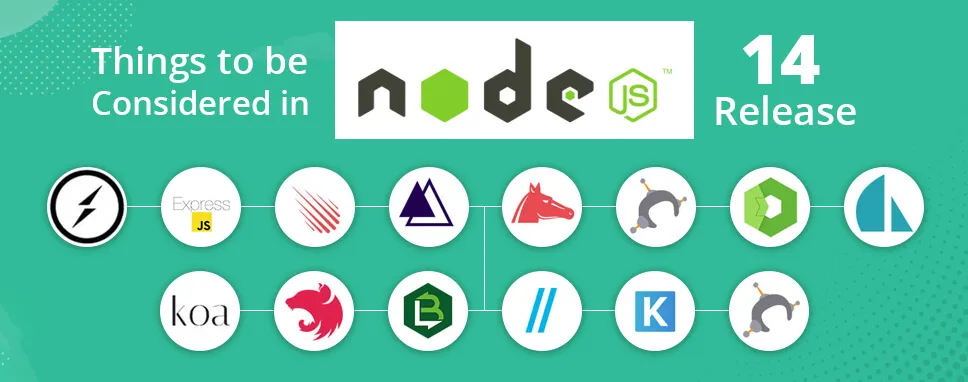Power BI Report Server: Key Features and Elements
Every CTO knows the struggle of managing complex reports. The inefficiency of scattered data, the constant juggling between reporting tools, the challenge of ensuring accurate KPIs...
Kapil Panchal - August 14, 2020
Listening is fun too.
Straighten your back and cherish with coffee - PLAY !

Nodejs framework is one of the most trending developer tools among Software development companies because it provides a JavaScript runtime environment for application development. Recently, a new version of Node.js server-side JavaScript runtime engine had been launched on April 21, 2020. This newest version brings a wide range of features and enhancements that excite developers integrating the capacity of storing data through an online request, and in-built diagnostic reporting.
According to GitHub, for the next six months, Node.js 14 will be the current release and in October 2020, it will be further promoted to Long-Term Support (LTS).Therefore, Nodejs web development firms and developers need to wait until October to upgrade their product development when Node.js promoted to Long-term-support. The latest and amazing features added to the great flow rapidly into the present Node.js launch. This implies that important features become accessible in small releases without many demonstrations.
This is also called as continuation local storage. Node developers have been working on APIs to utilize context across asynchronous calls over a number of releases. This allows data storage throughout the lifetime of an online request.
Though you may find other npm modules that provide the same performance, using different packages comprehensively was very hard. Because of this, it was determined that an API must be given.
In Node.js 14 this stable feature is added which was not there in Node.js 12. While using Node.js, this step is important for the continuous work inside the project for improvement and make the diagnostic available. This exceptional feature helps you to create a report on-demand during a particular event occur. This report comprises useful data to assist diagnose issues in app development integrating unwanted errors, high CPU usage, memory leaks, slow functionality, crashes, and more.
As a constant feature, there will be one less command-line option required to enable Diagnostic reports and it must be simpler for users to allow it in production environments.
Improvement in consistency of the stream’s APIs, to streamline behaviours and eradicate ambiguities across the parts of Node.js core. This feature integrates several modifications labelled as Semantic Versioning, major in the Node.js Streams application.
JavaScript Engine’s new version will provide performance enhancements and a few new features as follows:
Intl.DateTimeFormat – This feature allows numbering system and calendar options.
Nullish Coalescing – It’s a logical operator that will return its RHS operand when its LHS is not defined or null.
Despite the need to integrate the experimental-modules flag was removed in Version 13, running EcmaScript Modules in Node.js would still give an outcome as a warning ‘Experimental Warning: The ESM module loader is experimental.’
This warning is no more needed in Node.js 14 while using ESM in Node.js. Users require to be attentive while using this ESM feature in a production environment. In Node.js, it is believed that the Node.js will be stable soon as the ESM app is still experimental.
Node.js 14 will get the latest features that are contributed to Node.js. This new release is appropriate for the next 6 months for trying out the newest and useful features, checking out project compatibility with the latest updates of Node.js, and giving feedback so that this release is prepared to move to Long-Term Support in October 2020.

Every CTO knows the struggle of managing complex reports. The inefficiency of scattered data, the constant juggling between reporting tools, the challenge of ensuring accurate KPIs...

The very first reason why you should implement Row Level Security is to foster trust, a crucial element for any business's success. Next, it reduces data clutter and helps you load...

The performance of Power BI is significantly influenced by two essential factors: design consistency and the rapid loading of BI elements. This holds true whether you choose Tableau...